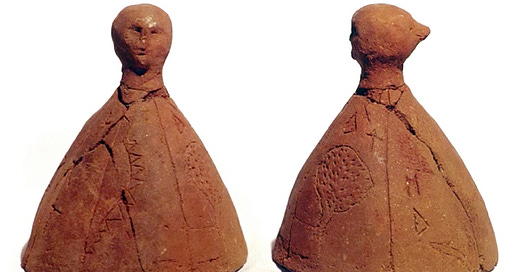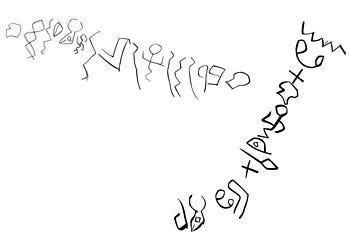This week's letter is an invitation to investigate what you do that you love that you might wrongly believe you can't do or shouldn't do.
Is there anything you love doing but question your qualifiers and aren't sure you have permission to do it? Or, was there anything you loved doing, but someone else was better than you at the said thing, and somehow you learned that there was no room for your growth and attempts? Or you loved so many things, and you read the script that said you needed to choose a single major and therefore chose a path that severed other branches of your creativity.
This week I offer permission to claim and name that part of yourself that loves doing something your way.
I write, and you read my writing, but I am shy to say I am a writer. I am still coming out as a writer. I didn't grow up knowing I was a writer or that I wanted to be a writer. I am still learning where I belong in the parade of writers and where my sacred scribbles stack in a library. Does graffiti count as writing? What about pictographs? What counts? Who counts? Who makes up the rules?
Writing is a way of creating order and discovering meaning in my living experience. I've always loved writing in journals, making lists, and writing poems. But, all this writing hasn't been capital W in my book. Someone else wrote the book on how to be a writer, and what good writing is, someone I've chosen to believe over the pages that pile up scribbled with words I've written.
As a young person, I was a bookworm, a rabid reader set off by Charlotte’s Web, on fire by Nancy Drew, devouring all fairytales and ending middle school having read Clan of the Cave Bear, Gone With the Wind, and every non-fiction I could find on true crime, cults, and disturbing disorders. But I didn't like writing in school. There were too many rules. There were too many red marks on my grammar tests. I never figured out how to tell you what a good sentence was made of. (I still cannot tell you that). Please don't ask me what a preposition is because I don't know, don't care, and don't know why we make children learn what a preposition is? It would be far more interesting to learn how a P became a P or the story of language versus a rule of language.
P was peh, which originally meant mouth. Its meaning was linked to food, breathing, love, and language. It was an organ-letter.1
Can you describe the gate of your walk with the terminology of the muscles and ligaments and the how's and why's of the mechanics of your feet touching the ground? Do you need to know those things to see that you can walk? What if your teachers and parents said your walking was heavy, and you needed to be a graceful walker like your friends? Would that undermine your ability to keep walking your way?
Writing is like walking.
I'm a walker and a writer, and my favorite writing advisor says he writes when he walks. I do that too.
I'm choosing writing–as my late major, you might say. It's been a daily practice for as long as I can remember despite believing I couldn't do it.
Imagine walking while also believing you couldn't walk?
For the last few years, I have been writing pages and pages and pages of a book. It is taking me years because I have been stumbling, which is another way of saying learning as I go. Baby steps.
Fiction feet–not my shape. Long form-blow me up. I've been tripping myself up because I have been trying to walk in the wrong-fitting shoes and doubting I can walk.
One idiom I heard my whole life as an artist was, "First, learn the rules to break them." Break that fucking rule. Let the rule followers figure out which rule you broke while you strut forward, doing what you love.
We are meant to do what we love–our way.
Rules are designed to help, not harm–if they hurt, throw them out. That's my rule.
But don’t listen to me a ruleless writer who can't tell you the difference between then and than or how she can walk other than she puts one foot in front of the other, then she puts the other one down. Listen to yourself, the self in you that loves doing the thing you want to do more of.
PS. In my Creativity + Courage workshops I used to ask my adult students who thought they were good at drawing. Almost no one ever thought they were. Next, I would ask them to write their names on one piece of paper and on another sign their names. Then we would hang these on the wall and marvel at the amazing drawings. We could see that we all were magnificent at drawing both recognizable information as well as unique personal expressions. The problem was that we didn’t think we were good at drawing because we were holding ourselves to a definition of drawing akin to a Michelangelo drawing. A drawing is simply a mark or series of marks that express something. Let’s make our mark doing what we love.
P is the initial of the Hebrew peh, which means mouth. In original Proto-Sinaitic it was drawn as an open smiling mouth. It originally meant: mouth, to speak, to eat, to breath. Derivative meanings included: breathing, female genitalia(mouth below), orally transmitted memory, oral law, book as an item to be read, reading, interpretation.






